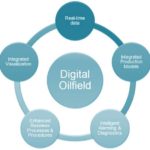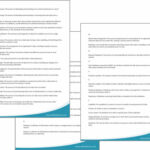Many companies are today engaged in the standardization of the data they hold in corporate data stores. In the Oil & Gas sector, a great variety of data stores are used, such as OpenWorks, Corporate Data Store, Seabed, Finder and PPDM. In this post we will take a look at the challenges of migrating this data, followed next week by a recommended process for managing the migration.
The data is usually held in database tables – which themselves contain catalogue controlled values – and has often been extended or adapted for regional circumstances. This causes two day-to-day issues:
- Corporate reports assembled from such data can easily be misleading. An attempt to discover something as simple as the relative number of ‘on shore’ and ‘off shore’ wells may fail if one of the regional stalls has decided to classify wells as ‘tidal’, ‘shallow water’ and ‘deep water’ – or just as ‘on’ and ‘off’.
- Engineers trained in one region, or working for one subcontractor, can find it difficult to work in another region where standard reference values are chosen from a different set.
While these are awkward issues, it is typically difficult to assign a direct cost to any accounting centre and hence calculate the benefit of fixing it. A more pressing reason often arises when stores are to be upgraded to newer (and more consistent) versions, or when data held in legacy stores needs to be sufficiently cleaned so it can be migrated into corporate standard stores. Often, the day-to-day issues are tolerated until a migration is required by the business.
What makes this a tricky problem is the mismatch between the tools available to the average engineer – usually not much more than Excel and SQLplus – and the extreme complexity of a modern data store. PPDM 3.8, for example, contains over 1700 tables. A hand-tool approach to such a problem is going to be very expensive, tying up valuable staff for weeks on end and quite possibly failing.
It is in these circumstances that metadata tools in the right domain specialist’s hands come into their own. In next week’s post we will share our process for interpreting and manipulating the data.
Read more detail in our free white paper: Implementing corporate data standards in the field using metadata-centric tools.
Further reading










